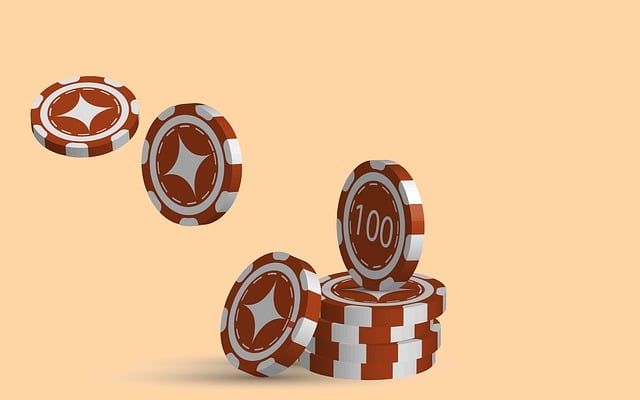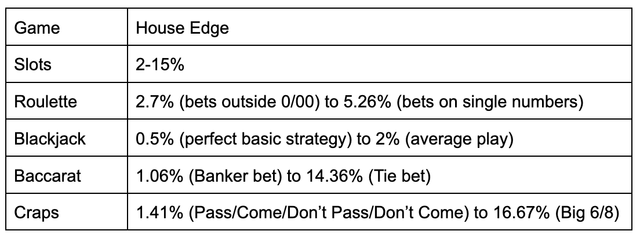How to Improve Your Chances in Casino
- Category: Pics |
- 13 May, 2025 |
- Views: 536 |

When you walk into a casino, flashing lights and exciting sounds draw you into games designed to be entertaining. However, behind the glitz lies sophisticated math powering every spin, roll and deal to gain an inherent advantage for the house. While the odds favor the casino in the long run, understanding the probabilities and mechanics behind popular games can significantly improve your individual chances of winning.
How Casino Games Are Designed
Casinos are profitable because of the math edge built into games. While specific rules and payouts vary, the statistical probability of each potential outcome is carefully calibrated to give the house an advantage. This mathematical edge is expressed as the house edge – the percentage of each bet the casino expects to win over time.
The house edge at Crown Gold works because of the law of large numbers. While variance causes short-term swings of luck, over hundreds of thousands of bets the actual results converge around the expected probabilities. So even small edges like 1-2% generate huge profits over years of play.
Of course, the random nature of games means anything can happen in the short run. A lucky player may temporarily win big, despite the odds. But maintaining that luck is unlikely over time. Understanding this key aspect is vital for responsible gambling.
Common Casino Games and Their Odds
Here are some of the most popular casino games and their typical house edges:

These edges may seem small, but losing 2% on every $100 bet adds up quickly. The more bets you make at those rates, the more the house expects to profit.
Calculating Probabilities and Setting Loss Limits
While you can’t change the underlying odds, you can calculate probabilities to estimate potential wins and losses. This informs rational betting behavior – like setting a loss limit – to minimize risk.
Let’s walk through an example roulette scenario:
You plan to bet $10 per spin on black, which wins if the ball lands on a black number. Black has a 47.37% probability of hitting. If you bet 100 times, basic statistics says you can expect around 47 black number hits. But actual results may differ – sometimes widely – from the probabilities.
To estimate potential outcomes, you can calculate standard deviation – how far actual results vary from the statistical mean.
• Mean expected black hits = 100 spins x 47.37% probability = 47.37 black number hits
• Standard deviation = ~4 hits
• So results between 43 to 51 black hits are within one standard deviation – encompassing 68% of potential outcomes
• Results between 39 to 55 hits are within two standard deviations – encompassing 95% of potential outcomes
This shows with 100 $10 bets, you can expect to lose money most of the time, but occasionally win. Setting a prudent loss limit guards against chasing losses based on irrational hopes. Disciplined betting control is key to managing risk.
Tilting the Odds Further With Optimal Strategy
While casino games favor the house, skilled play using optimal strategy can reduce its edge significantly. Essentially this means making betting and playing decisions to maximize the mathematical probabilities in your favor.
For example, in blackjack the house edge against random average play is around 2%. But by memorizing basic strategy charts advising the optimal move for every possible hand scenario against the dealer, the edge drops to around 0.5% – slightly tilting odds in the player’s favor.
Similarly in video poker, using optimal strategy like holding the right cards to draw for particular hand combinations can dramatically reduce the house edge from 3-5% down to fractions of a percent.
Of course this takes effort to learn and master optimal play strategy. But it can meaningfully improve your overall chances against the house advantage.
Think Long-Term and Play Controlled
Casino games are mathematically designed to favor the house. Short term luck causes variance, but the law of large numbers means the house edge becomes practically certain over time. To improve your chances:
• Learn how games work and calculate probabilities using standard deviation to estimate potential wins and losses
• Set rational loss limits and stick to them
• Study optimal betting and playing strategy to reduce the house edge
• Think long-term – focus bankroll management on maximizing time playing instead of maximizing bets
• Enjoy casino entertainment responsibly by playing controlled
With some knowledge and discipline, you can stretch your gambling bankroll and stand a better chance of coming out ahead. But always go in knowing the games favor the house in the long run. Maintaining perspective on the math and probabilities is key to playing smart and having fun without losing the house.

